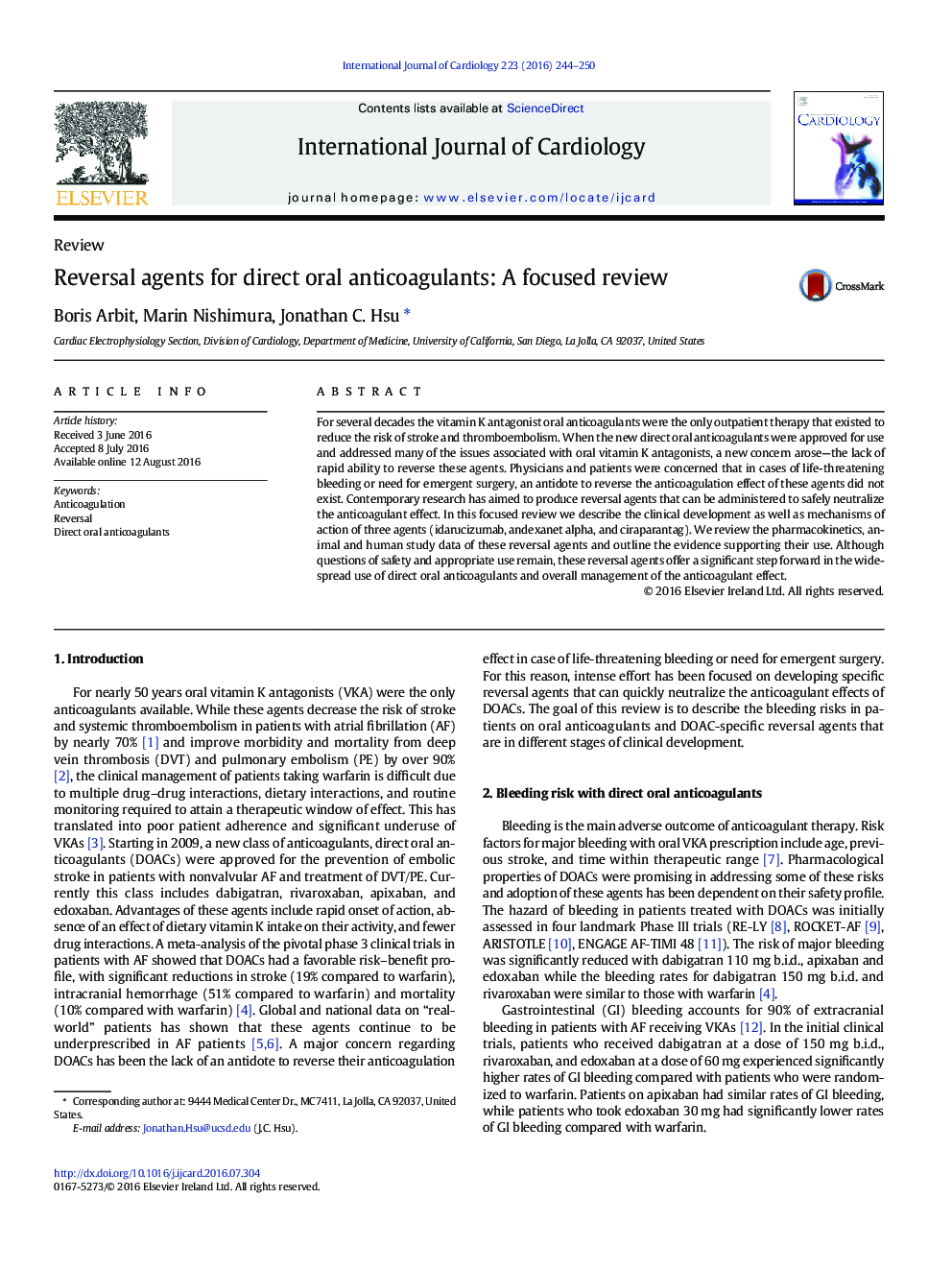| Article ID | Journal | Published Year | Pages | File Type |
|---|---|---|---|---|
| 5963069 | International Journal of Cardiology | 2016 | 7 Pages |
â¢Idarucizumab is the first agent approved to reverse dabigatran.â¢Andexanet alpha has been shown to reverse effects of Factor Xa inhibitors.â¢Ciraparantag was safe and well tolerated in a Phase I clinical trials.â¢Discontinuation of DOACs may be sufficient in most clinical situations.â¢Use of specific antidotes for DOACs should be restricted to most emergent cases.
For several decades the vitamin K antagonist oral anticoagulants were the only outpatient therapy that existed to reduce the risk of stroke and thromboembolism. When the new direct oral anticoagulants were approved for use and addressed many of the issues associated with oral vitamin K antagonists, a new concern arose-the lack of rapid ability to reverse these agents. Physicians and patients were concerned that in cases of life-threatening bleeding or need for emergent surgery, an antidote to reverse the anticoagulation effect of these agents did not exist. Contemporary research has aimed to produce reversal agents that can be administered to safely neutralize the anticoagulant effect. In this focused review we describe the clinical development as well as mechanisms of action of three agents (idarucizumab, andexanet alpha, and ciraparantag). We review the pharmacokinetics, animal and human study data of these reversal agents and outline the evidence supporting their use. Although questions of safety and appropriate use remain, these reversal agents offer a significant step forward in the widespread use of direct oral anticoagulants and overall management of the anticoagulant effect.
